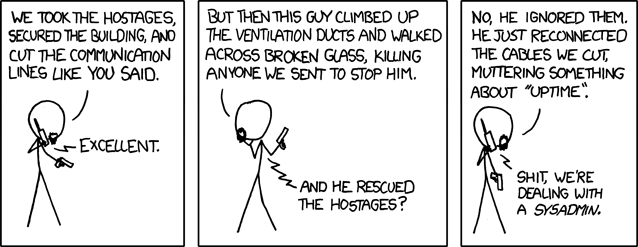this post was submitted on 19 Sep 2023
1133 points (98.8% liked)
Programmer Humor
32479 readers
641 users here now
Post funny things about programming here! (Or just rant about your favourite programming language.)
Rules:
- Posts must be relevant to programming, programmers, or computer science.
- No NSFW content.
- Jokes must be in good taste. No hate speech, bigotry, etc.
founded 5 years ago
MODERATORS
you are viewing a single comment's thread
view the rest of the comments
view the rest of the comments

I never wrote an api that had a health system. Could you help me understand why that matters and how that helps ?
Just have an endpoint in your API (like
/health) that doesn’t do anything but return “ok”.So if your database goes down, your filesystem is full, etc, that endpoint will always return “ok” with HTTP 200. That way you can setup a ping monitoring service that will trigger an alarm if the process itself is down.
You of course need more pinging for the database server etc. But at least you know which service is down instead of “the whole website is down and we don’t know which parts”.
Health checks are the only reason I've used 204 no content responses, so there's that too.
That's because you don't write bugs. Health check are only needed when you're planning on having bugs in your system. Instead of doing monitoring I prefer to spend a bit more time fixing all the bugs and then my systems never break so no monitoring is needed. Of course the downside is lack of job security. They can fire me and the system will just continue running forever, no support needed. If you add some bugs they cannot fire you because someone needs to keep fixing the broken system.